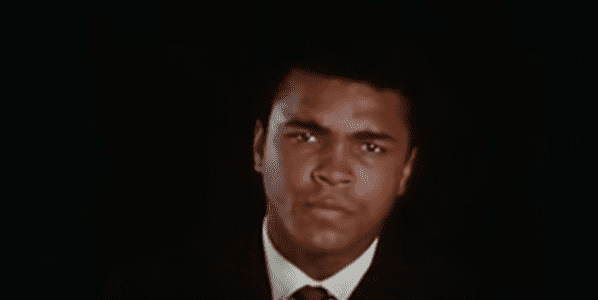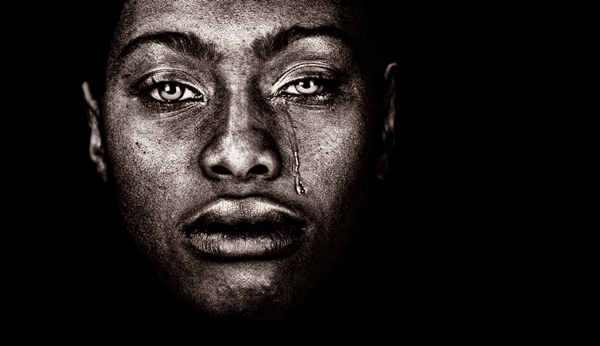 Muhammad Ali was a giant. A legend whose persona was larger than life. He is known for being the G.O.A.T.
Muhammad Ali was a giant. A legend whose persona was larger than life. He is known for being the G.O.A.T.
If you’re a boxing fan (which I’m not), you know that G.O.A.T. refers to Ali being the “Greatest of All Time.” Part of Ali’s greatness was his unabashed self-confidence. He frequently boasted, “I am the greatest!” His verbal punches were as powerful, and as entertaining, as the punches he threw in the ring.
But if you’re a mimetic theory fan (which I am), G.O.A.T. doesn’t refer to the “Greatest of All Time.” Rather, it refers to the tendency all humans have to scapegoat. Mimetic theory is a social theory that claims humans have a natural tendency to blame someone else for the problems that threaten our community. Inner conflicts and rivalries are channeled onto someone else – our scapegoat – who becomes a lightning rod for our inner hostilities. The scapegoating process provides the community with a sense of harmony as it unites against a common enemy.
Muhammad Ali was definitely America’s G.O.A.T.
Ali was at his boxing prime during the 1960s, when conflicts permeated the United States. Ali confronted two of those major conflicts – racism and the Vietnam War. After converting to Islam, Ali was conscripted into the Vietnam War. Ali refused to participate, claiming to be a conscientious objector. He stated,
War is against the teachings of the Qur’an. I’m not trying to dodge the draft. We are not supposed to take part in no wars unless declared by Allah or the Messenger. We don’t take part in Christian wars or wars of any unbelievers … Man I ain’t got no quarrel with them Viet Cong … Why should they ask me to put on a uniform and go ten thousand miles from home and drop bombs and bullets on brown people in Vietnam while so-called Negro people in Louisville are treated like dogs and denied basic human rights?
As a boxer and a social commentator, Ali may indeed have been the G.O.A.T. He was one of the greatest and most influential voices of all time. And he made many in white America very uncomfortable.
Because, you see, scapegoats are supposed to keep quiet. The status quo doesn’t like it when scapegoats talk. That’s because the status quo likes to turn a blind eye to our goats. But Muhammad Ali refused to be silenced. Instead, as a member of a group marginalized by America’s systemic sin of racism, Ali’s powerful voice spoke up for those on the margins. Ali suffered the consequences. He was threatened with prison, ridiculed by many, stripped of his heavyweight title, and banned from boxing during his prime.
But he spoke up for scapegoats because of his faith in Islam. I know many nonviolent Muslims who would challenge his statement that Allah or the Messenger would declare war. But questions or religious pacifism and nonviolence aside, Muhammad Ali made the status quo of white America uncomfortable in the same way that the Prophet Muhammad made the status quo of his culture uncomfortable.
The Prophet Muhammad lived in a culture that marginalized the poor, widows, and orphans. The divide between rich and poor was even bigger in Muhammad’s time than it is in ours. Muhammad’s own tribe, the Quraysh, believed that “Fate” was in control. The economic elite felt no incentive to help the poor. They feared helping the poor would be an economic hardship and that they would be going against Fate.
The Prophet Muhammad knew that “Fate” was a superstition that simply reinforced the status quo. He insisted that Allah cares about all people, but especially those on the margins of society. Muhammad began to speak up for the poor and the dispossessed. He made the radical claim for his time that the poor deserved to be cared for and respected, simply because they were human.
And the Prophet Muhammad suffered the consequences for his actions. In speaking for the scapegoats, he became a scapegoat as his own tribe united against him. Over many years, Muhammad hid from the Quraysh, who sought to kill him. Martin Lings writes in his biography of Muhammad that the Quraysh tribe agreed that, “Every clan was to nominate a strong, reliable and well connected young man, and at a given moment all these chosen men together should fall upon Muhammad, each striking him a mortal blow, so that his blood would be on all the clans.” That’s important because if Muhammad’s blood was on all the clans, no individual clan would be held responsible for his death. That’s the paradox of the scapegoating mechanism – when everyone is guilty, no one is guilty.
Although threatened, Muhammad continued to confront the Quraysh with their own scapegoating practices. Muhammad spoke the truth about victims to the powerful elite. He confronted the status quo with their own political and economic violence, which made the powerful very uncomfortable.
Muhammad Ali’s greatness was similar to the greatness of the Prophet Muhammad. They risked their lives to speak the truth about their culture’s scapegoats. In doing so, they made many uncomfortable. And that’s a good thing. We should be uncomfortable with racism and economic injustice. In making the status quo feel uncomfortable, they pointed all of us toward a better world.
Image: Screenshot from YouTube.











